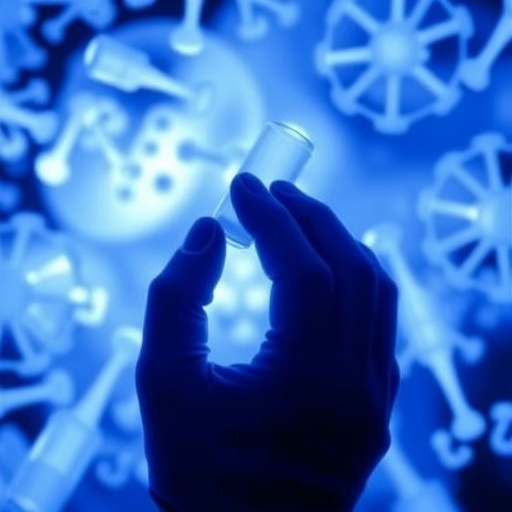Revolutionizing Disease Treatment: The Rise of Antibody-Based Therapeutics
In recent years, the battle against various diseases has taken a notable turn with the emergence of antibody-based therapeutics. This innovative approach harnesses the body’s own immune system, providing a powerful tool in the treatment arsenal for conditions ranging from autoimmune disorders to various types of cancer. Researchers, led by Lu et al., have meticulously analyzed the progress in this field and outlined the trajectory of antibody development, shedding light on how technological advancements are reshaping therapeutic options for patients worldwide.
Antibodies, which are proteins produced by the immune system, play a crucial role in identifying and neutralizing pathogens. Traditionally, therapies relied heavily on small molecules or synthetic drugs. However, the intricate design and specificity of monoclonal antibodies have ushered in a new era in medicine. These engineered proteins are tailored to bind to specific targets, offering a targeted approach that minimizes damage to healthy tissues while effectively combating disease.
One of the most exhilarating aspects of monoclonal antibody development is the rapid pace of innovation driven by cutting-edge technologies. Advances in recombinant DNA technology have significantly streamlined the process of engineering antibodies, making it easier than ever to produce highly specific therapeutic candidates. The use of hybridoma techniques has paved the way for the generation of stable and reproducible antibody-producing cell lines, enabling large-scale production and facilitating clinical trials.
Moreover, the advent of phage display technology has revolutionized the screening process for antibody affinity and specificity. By utilizing bacteriophages, researchers can efficiently identify and isolate high-affinity antibodies from vast libraries. This has not only expedited the discovery phase but has also resulted in antibodies that possess enhanced therapeutic efficacy, reducing the time it takes to bring a new treatment from the laboratory to the patient.
The therapeutic applications of monoclonal antibodies are vast and varied. Cancer treatment has particularly benefited from this technology, with numerous antibodies already approved for clinical use. Agents such as trastuzumab and rituximab have changed the landscape of oncological therapy, offering hope to patients with previously dismal prognoses. As research continues, biopharmaceutical companies are focusing on expanding the range of targetable cancers, aiming to increase survival rates and improve quality of life for affected individuals.
In addition to oncology, antibody-based therapies are making waves in the field of infectious diseases. The recent COVID-19 pandemic illustrated the critical role that engineered antibodies can play in controlling viral outbreaks. Monoclonal antibodies targeting the SARS-CoV-2 virus were developed at an unprecedented pace, showcasing the flexibility of antibody technology in addressing urgent global health challenges. These therapies provide a robust defense against viral infections and demonstrate the potential for rapid responses to emerging pathogens.
Another promising frontier for antibody therapeutics lies in the realm of autoimmune diseases. Conditions such as rheumatoid arthritis, lupus, and multiple sclerosis have already seen breakthroughs with the introduction of targeted therapies that can modulate the immune response. By selectively inhibiting specific pathways, these antibodies can relieve symptoms and potentially halt disease progression, transforming the standard of care for patients with debilitating conditions.
Despite the remarkable successes, the journey of antibody therapies is not without its challenges. Researchers are continually grappling with issues such as immune tolerance, where the body may develop resistance to treatment over time. Additionally, the high costs associated with monoclonal antibody production pose significant barriers to accessibility, leading to disparities in treatment availability across different populations. Addressing these challenges will require collaborative efforts from scientists, healthcare providers, and policymakers to ensure that the benefits of antibody therapeutics can be realized by all.
As we look ahead, the future of antibody-based therapeutics is bright. Emerging technologies such as CRISPR gene editing and artificial intelligence are poised to further revolutionize the field. By enabling the precise modification of antibodies and optimizing their therapeutic properties, these advancements could result in next-generation therapies that are more effective and have fewer side effects. The ongoing fusion of biology and technology heralds a new era in medicine, where treatments can be tailored to the individual characteristics of each patient.
In conclusion, the advancements described by Lu et al. encapsulate a paradigm shift in the treatment of diseases through antibody-based therapeutics. As researchers continue to unravel the complexities of the immune system and refine antibody engineering techniques, the potential for innovative therapies expands exponentially. The intersection of technology and medicine not only promises improved outcomes for patients but also emphasizes the power of scientific exploration. As we stand on the cusp of these discoveries, the hope for a healthier future lies in the hands of the researchers, practitioners, and innovators dedicated to unlocking the full potential of antibody-based therapies.
The journey is only beginning, and with continued research and investment, we can anticipate a future where diseases once thought to be untreatable will become manageable or even curable, thanks to the remarkable power of antibodies. The path forward is filled with possibilities, and the implications for healthcare as we know it are profound. As this field evolves, it is essential to stay informed and engaged in the ongoing dialogue about the role of antibody-based therapeutics in shaping the future of medicine.
Subject of Research: Antibody-based therapeutics for disease treatment
Article Title: Technological advancements in antibody-based therapeutics for treatment of diseases
Article References:
Lu, RM., Chiang, HL., Yuan, J.P. et al. Technological advancements in antibody-based therapeutics for treatment of diseases. J Biomed Sci 32, 98 (2025). https://doi.org/10.1186/s12929-025-01190-2
Image Credits: AI Generated
DOI: https://doi.org/10.1186/s12929-025-01190-2
Keywords: Antibodies, Monoclonal Antibodies, Cancer Treatment, Infectious Diseases, Autoimmune Diseases, Therapeutic Innovations.
Tags: advancements in antibody researchantibody-based therapeuticsautoimmune disorder treatmentscancer immunotherapy advancementsfuture of antibody therapiesimmune system therapiesinnovative disease treatment methodsmonoclonal antibody developmentprotein engineering in therapeuticsrecombinant DNA technology in medicinetargeted drug delivery systemstherapeutic protein design





